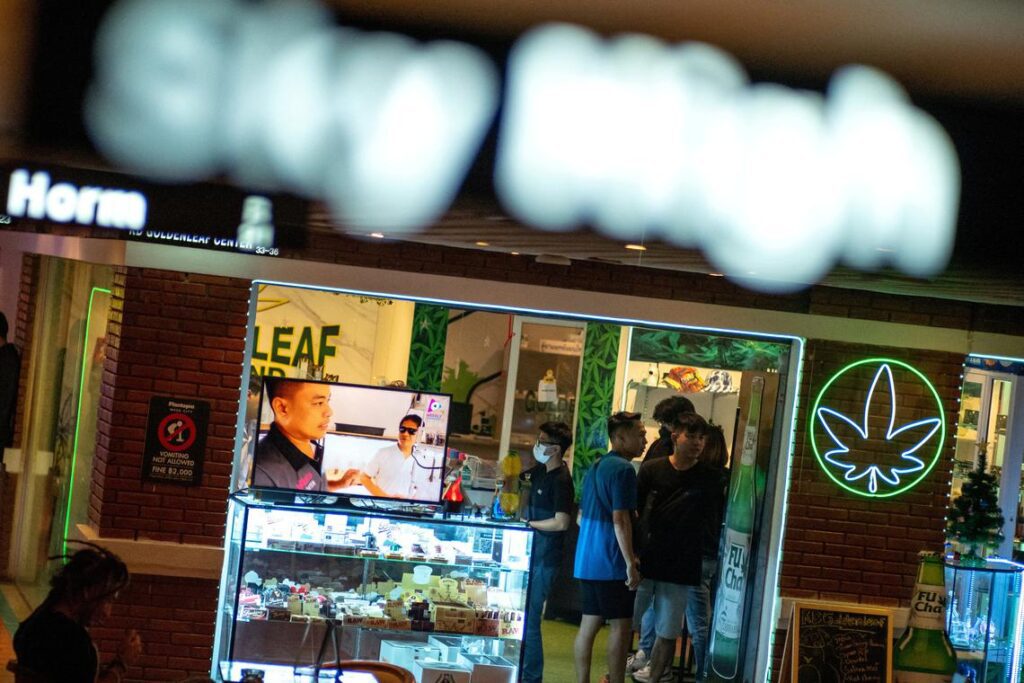BANGKOK
Thailand’s Prime Minister Srettha Thavisin announced on Wednesday that the government plans to restrict cannabis usage exclusively for medical purposes. This development follows the country’s landmark move in 2022 when it became the first in Asia to decriminalize cannabis.
Government’s Intent to Revise Cannabis Policy
During an interview with Bloomberg Television’s Haslinda Amin in New York, Srettha expressed the need to “rectify” the current cannabis policy and manage the exponential rise in dispensaries across Thailand. The Prime Minister stated:
“The law will need to be rewritten. It needs to be rectified. We can have that regulated for medical use only. There cannot be a middle ground for recreational use.”
Coalition’s Position on Cannabis Regulation
While he highlighted a consensus among the coalition of 11 parties about the necessity of limiting cannabis usage, the specifics of the government’s plan remain uncertain. Srettha’s own Pheu Thai Party previously endorsed a strong anti-drug stance, pledging to rollback cannabis decriminalization.
Interestingly, Srettha’s coalition partner, the Bhumjaithai Party, led by Anutin Charnvirakul, aims to introduce a cannabis bill in Parliament. This bill seeks to enhance industry regulation while opposing the reclassification of cannabis as a narcotic.
Rapid Growth of Dispensaries in Thailand
Since the decriminalization, nearly 6,000 dispensaries have proliferated throughout Thailand. These establishments offer a range of products, from cannabis buds to oil extracts, typically containing less than 0.2% tetrahydrocannabinol (THC)—the psychoactive element in cannabis.
– **Farmers**: Thai farmers can grow cannabis freely after registering with the Food and Drug Administration.
– **Local Concerns**: Dispensary owners are facing challenges due to excessive imports and falling prices.
Industry Perspectives on Regulation
Despite the proposed changes in regulation, the cannabis industry remains largely unfazed. Poonwarit Wangpatravanich, president of the Phuket Cannabis Association, remarked:
“The medical benefits of cannabis blur the lines between health and recreational use. More regulation will be good as we don’t want a free-for-all anyway. Cannabis is here to stay, but in what status is not yet clear.”
Conversely, cannabis advocate Rattapon Sanrak warned that reclassifying cannabis as a narcotic could push recreational use underground, complicating control efforts.
Government’s Broader Drug Policy Objectives
Under Srettha’s administration, there is a pronounced focus on eradicating drugs from Thai society. The Prime Minister stated his commitment to significantly reduce drug-related issues within a year, as he presided over the destruction of confiscated narcotics earlier this week.
Thailand is often viewed as a central route for drug trafficking in Southeast Asia’s Mekong River valley, where enforcement agencies are sometimes seen as turning a blind eye. The United Nations Office on Drugs and Crime estimated the region’s organized crime economy, which includes drug and wildlife trafficking, was valued at $130 billion in 2019.
Regional Challenges and the Need for Solutions
Srettha identified increasing drug problems, particularly in northeastern and northern Thailand, emphasizing:
“We don’t need another issue added on top of that.”
As the government works to reform cannabis legislation and drug policy, it remains essential to maintain a balanced approach that addresses public safety while recognizing the evolving cannabis landscape in Thailand.


